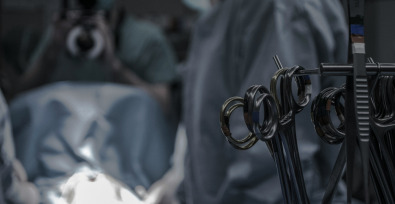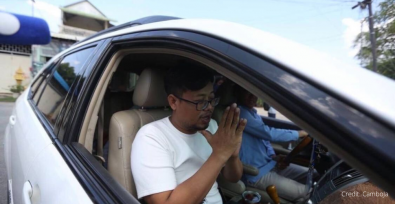China’s illicit forced organ harvesting industry, valued at a staggering $1 billion annually, targets ethnic and religious minorities, including Uyghurs, Tibetans, Muslims, Christians, and Falun Gong practitioners. This abhorrent trade has drawn condemnation from U.S. lawmakers across party lines, as well as human rights organizations across the globe.
Background on China’s crimes against humanity
For over two decades, China has been accused of prosecuting a state-sponsored campaign of forced organ harvesting using prisoners of conscience. Despite vehement denials from Beijing, mounting evidence and international consensus stresses the urgent need for action. The findings of the China Tribunal, corroborated by leading researchers and U.N. experts, highlight the systematic nature of forced organ harvesting in China, constituting crimes against humanity.
According to The European Times, researchers estimate that between 60,000 and 100,000 transplants have taken place every year in China since the early 2000s.
As reported by Real Clear Politics,
In 2005, the top transplant doctor in China, then serving as the nation’s vice minister of health, admitted that roughly 95% of all organ transplants came from prisoners.
Prisoners of conscience – religious minorities and political dissidents are the main victims. There’s now extensive evidence that Chinese surgeons first honed their murderous organ harvesting practices on practitioners of Falun Gong, a meditation and exercise movement. In recent years, the regime expanded its pool of victims to China’s imprisoned Uyghur population as part of its systematic oppression of the Muslim minority group.
E.U. advocacy
European human rights organizations, led by the International Coalition to End Transplant Abuse in China (ETAC), have penned an open letter to the E.U.’s High Representative for Foreign Affairs and Security, Josep Borrell. The letter urges robust action to shield E.U. citizens and institutions from complicity in China’s reprehensible practices.
Despite China’s introduction of new regulations on organ donation and transplantation, critics argue that these measures lack transparency and accountability. The failure to align with international standards has perpetuated a system of abuse, particularly against persecuted minorities.
Susie Hughes, Executive Director of the International Coalition to End Transplant Abuse in China (ETAC), said:
“In line with its human rights responsibilities, the E.U. must urgently investigate initiatives – backed by institutional funding – that are engaged with China’s transplant sector for potential breaches of international law.
At the same time, the E.U. and its Member States must confront rising cases of transplant abuse involving E.U. citizens. The E.U. must introduce mandatory reporting requirements on the provenance of organs obtained overseas to ensure compliance with international law and ethical standards.
Failure to act risks the E.U., its institutions or citizens being complicit in egregious abuses of human life and in the commission of crimes against humanity.”
U.S. Congressional initiative
Simultaneously, U.S. lawmakers are mobilizing to address the crisis. Six members of the Congressional-Executive Commission on China (CECC) have urged the State Department to intensify efforts to combat forced organ harvesting in a bipartisan coalition.
“Forced organ harvesting is an atrocity, and the disruption and deterrence of this practice should be a priority of the State Department,” the group of lawmakers wrote.
The State Department currently administers reward programs offering up to $25 million for information leading to the arrest and/or conviction for transnational crimes. As such, the lawmakers are arguing for the expansion of this program to address this crisis. They state:
“Given the global demand for organ transplants and the evidence of the illegal trafficking of organs in the PRC, there is a pressing need to uncover first-hand information from those who witnessed or engaged in the practice.”
The path forward
Efforts to disrupt and deter forced organ harvesting remain paramount. The simultaneous actions by U.S. lawmakers and international human rights groups to address these egregious human rights violations is a powerful step. Through collective action and unwavering advocacy, we can end forced organ harvesting. Join our campaign to tackle organ harvesting and organ trafficking and uphold the dignity and sanctity of human life worldwide.







Freedom United is interested in hearing from our community and welcomes relevant, informed comments, advice, and insights that advance the conversation around our campaigns and advocacy. We value inclusivity and respect within our community. To be approved, your comments should be civil.
When I went to sign, a pop-up said “error”
This sounds like a shocking crime against humanity. I hope it will stop
Hi Jessica, thanks for bringing this up! Can you please tell us whether this was on mobile or laptop so we can look into it? In solidarity, Kiki
Yes, hope that these atrocities come to an end immediately. And I hope that many wake up to the fact that these evils are really and actually taking place in the autocratic one party state that is the country ruled by the Chinese communist party (worse than George Orwell’s 1984).
Hello – I went to sign and it pops up with error.